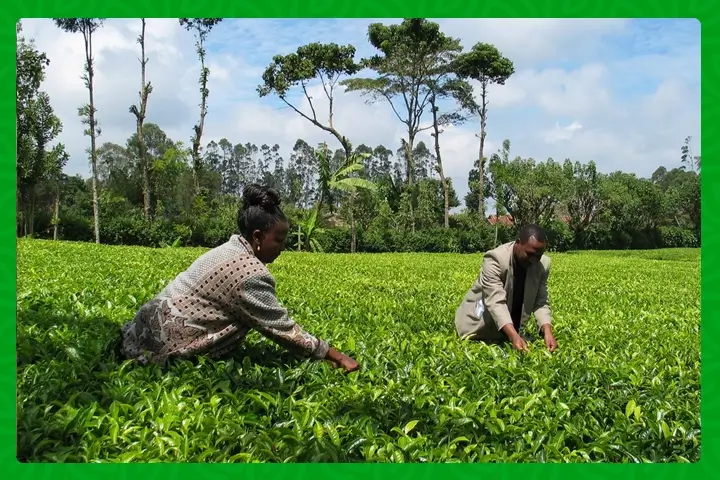
Kenyan tea, renowned for its rich flavor and robust quality, continues to draw global attention. However, a recent shift in the market dynamics has highlighted the benefits of producing high-quality tea. This article delves into the intricacies of Kenya’s tea industry, focusing on the trends of 2024, where superior quality tea has fetched better prices despite reduced production and exports.
Competitive Bids for High-Quality Tea
Farmers and factories focusing on high-quality tea are reaping the benefits of their dedication. According to Willy Mutai, CEO of the Tea Board of Kenya (TBK), tea from smallholder factories managed by the Kenya Tea Development Agency (KTDA) garnered an impressive average price of Kes366 (US$2.83) per kilogram for the main grades in October 2024. This is a noticeable increase from the Kes360 (US$2.78) recorded during the same period in 2023.
The premium placed on quality is evident as “good” to “medium” quality teas consistently attract competitive bids at auctions. In contrast, lower-grade teas, such as “lower medium” and “plainer” categories, have faced challenges, with some remaining unsold.
Production and Export Trends
October 2024 witnessed a decline in auction sales volumes, down to 32.58 million kilograms from 38.63 million kilograms in October 2023. This decrease in production is largely attributed to unfavorable weather conditions, particularly low and poorly distributed rainfall. Tea-growing regions west of the Rift Valley experienced better rainfall compared to the eastern regions, impacting overall production.
Despite the drop in monthly production, cumulative tea output for 2024 saw a 6.5 percent increase, reaching 495.23 million kilograms compared to 465.01 million kilograms in the same period in 2023. This growth highlights the resilience of the Kenyan tea industry amidst fluctuating climatic conditions.
Global Market Challenges
The global tea market faces numerous challenges that have influenced demand and prices. Economic shocks from the Russia-Ukraine conflict, internal strife in Sudan, and shipment disruptions through the Red Sea have all contributed to a complex trading environment. These factors have affected the absorption rates of certain tea grades, though overall absorption under the main auction catalogue remained relatively strong at 69 percent.
Key markets like Pakistan and Egypt have shown varied buying patterns. Pakistani packers were active but selective, while Egyptian and South Sudan packers displayed robust interest. The selective nature of these markets underscores the importance of maintaining high-quality standards to meet specific consumer demands.
Specialty Teas: A Growing Segment
Specialty teas, though a smaller segment, have shown promise. In October 2024, specialty tea production reached 710,560 kilograms, representing 2 percent of total production. Orthodox teas dominated this category, accounting for 92 percent of specialty teas, primarily produced by estates and independent factories. Other specialty varieties, including green and purple teas, were produced by cottage industries, showcasing the diversity within the Kenyan tea sector.
The Kenyan tea industry exemplifies the benefits of prioritizing quality over quantity. With high-quality teas commanding better prices amid reduced production, the focus on superior standards is proving to be a prudent strategy. As global market challenges persist, the resilience and adaptability of Kenyan tea producers remain key to sustaining their position in the competitive international market. By continuing to emphasize quality, the industry is well-positioned to navigate future challenges and capitalize on opportunities in the specialty tea segment.
Stay updated with the latest farming tips and agriculture industry news from Africa by subscribing to our newsletter. Don’t miss out on valuable insights and updates. Follow us on Twitter, LinkedIn, and Facebook to join our farming community and stay connected with us.


















